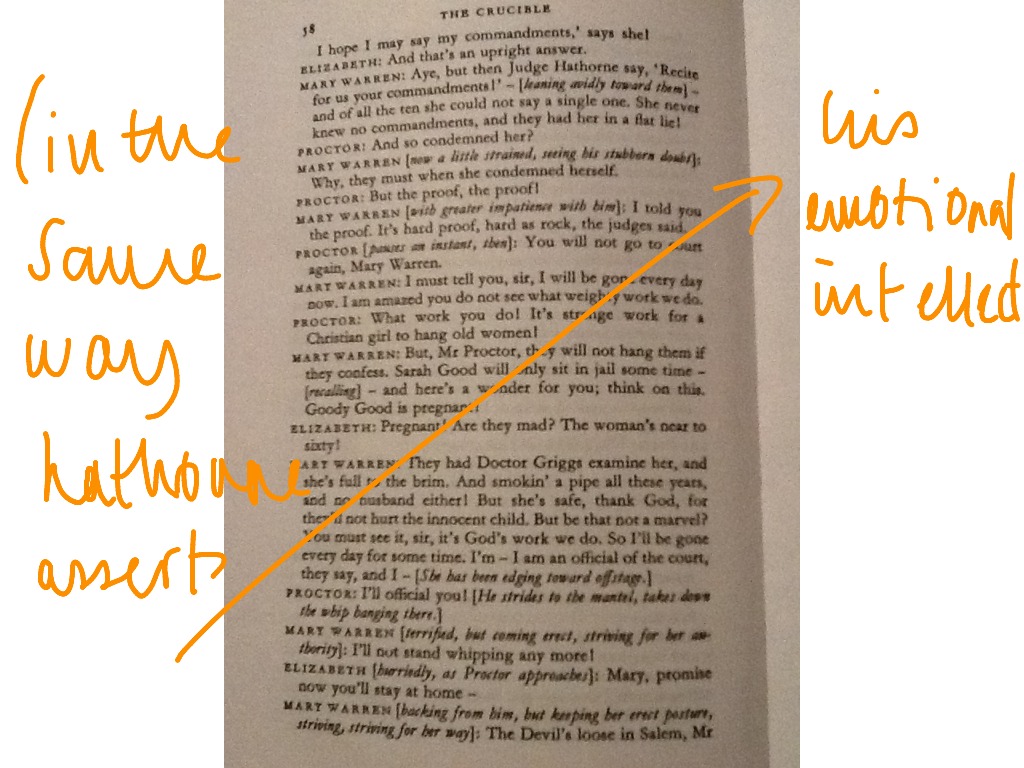
Proctor, guilt-ridden over the affair, tells her it's over. Abigail tells Proctor there was no witchcraft, and insists Proctor still loves her. While Abigail was a servant in the Proctor household, she and Proctor had an affair. Parris runs off to calm the crowd, and a local farmer named John Proctor winds up alone with Abigail. Abigail says they were just dancing, though it soon comes out that Tituba was trying to conjure dead spirits.

Rumors of witchcraft spread through the town and a crowd gathers at Parris's house while Parris, nervous about his reputation, questions Abigail about what the girls were doing in the forest. Betty faints in fright at being discovered, and will not wake. They may have thought that they could confess to falsely confessing and be forgiven at some future point.In the Puritan town of Salem, Massachusetts in 1692, the town minister, Reverend Parris, discovers his daughter Betty, niece Abigail, and other girls dancing in the forest with his slave Tituba. For some, it was easier to lie and say they were witches so that they could return to their lives and families. At the same time, it’s not hard to understand why someone would sign a false confession. These people may have had strong religious beliefs and felt God would damn them for lying, and they may also have realized that their reputation would be restored after the witch trials were over, even if they had lost their lives.

Like John Proctor, some people in Salem preferred to die rather than sign something that they knew was a lie. But many other people could not bear to falsely accuse their friends, neighbors, and families, especially since the only way those people could clear their names would be by implicating more members of the community. Plenty of people did sign false confessions, in which they were required to name others that they saw with the Devil. Why didn’t more people sign false confessions that they were witches to save their lives?


 0 kommentar(er)
0 kommentar(er)
